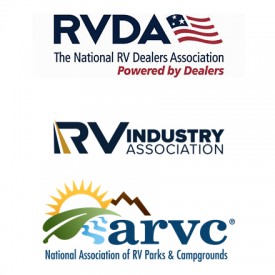RV Associations Praise HUD Rule

In a newly finalized rule, the U.S. Department of Housing and Urban Development (HUD) redefines the RV exemption from manufactured housing standards and provides a critical solution to the regulatory uncertainty that has plagued RV manufacturers, dealers and campgrounds for decades, according to the RV Dealers Association.
RV manufacturers, dealers, campgrounds and RV owners now have regulatory certainty that the RV lifestyle will remain the most attractive way to recreate.
The RV Industry Association, RVDA and the National Association of RV Parks and Campgrounds, along with state associations from California, Florida, Indiana, Michigan, Montana, Pennsylvania and Texas, recently sent a letter to HUD urging that this rule be finalized.
The final rule defines an RV as a vehicle or vehicular structure not certified as a manufactured home, designed only for recreational use and not as a primary residence or for permanent occupancy; and is either built and certified in accordance with either NFPA 1192-15 or ANSI A119.5-15; or any vehicle which is self-propelled.
The rule also contains an additional requirement that park model RVs contain a consumer-facing notice that the manufacturer certifies that the structure is a RV designed only for recreational use.
This rule gives RV manufacturers the critical regulatory clarity and certainty many have sought: so long as they build to the nationally-recognized RV standards, the modern RVs they are building do not and will not fall under HUD’s jurisdiction.
The rule gives RV dealers additional critical regulatory clarity they have sought: the proper paperwork, forms and disclosures the RV dealer needs to provide during a sales transaction are based on the design intent of the RV.
The rule also gives RV campgrounds the critical regulatory clarity and certainty that they have sought: in many cases the business license for RV parks and campgrounds only allows them to accommodate RVs, not manufactured homes, so under the proposed rule they would be able to accommodate any unit that is certified to an RV standard without running afoul of local regulations.



